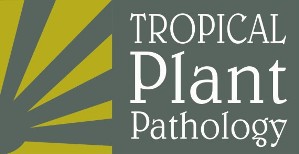Bacillus subtilis, Trichoderma harzianum, and milk were evaluated in 2004/2005 and 2005/2006 cropping seasons to control citrus black spot in organic systems. The treatments studied were: Bacillus (10(7) and 10(8) cfu/mL), media for the fermentation of Bacillus, Trichoderma (10(6) conidia/mL), milk (5%) and check (compost tea 3%). The products, except compost tea (sprayed monthly), were sprayed at scheduled intervals (28, 56, 84, 112, 140, and 168 days) starting on December 8th, 2004 and December 9th, 2005. Disease severity was evaluated by a six-category scale in 50 fruits. In 2004/2005, plants sprayed with milk and Bacillus (10(8) cfu/mL) did not differ from each other. These treatments presented an increase in the percentage of fruits in class 1 (26.3% and 19.4%, respectively), and a decrease in the percentage of fruits in class 3-6 (29.9% and 35.6%, respectively). In 2005/2006, spraying milk and Bacillus (10(7) cfu/mL) resulted in the highest percentage of fruits in class 1 (7.4 and 3.7%, respectively) and the lowest percentage of fruits in class 3-6 (64.4 and 71.0%, respectively). Plants treated with milk and Bacillus 10(8) cfu/mL had less disease during 2004/2005, with disease index (DI)=0.36, compared to DI of 0.43 for compost tea. In 2005/2006, values of DI in treatments with milk, Bacillus 10(7) cfu/mL and compost tea were 0.51, 0.53, and 0.53, respectively. The values of DI in plants sprayed with Trichoderma were 0.47 and 0.58, respectively for 2004/2005 and 2005/2006.
Guignardia citricarpa; citrus black spot; alternative control; biological control; compost tea



